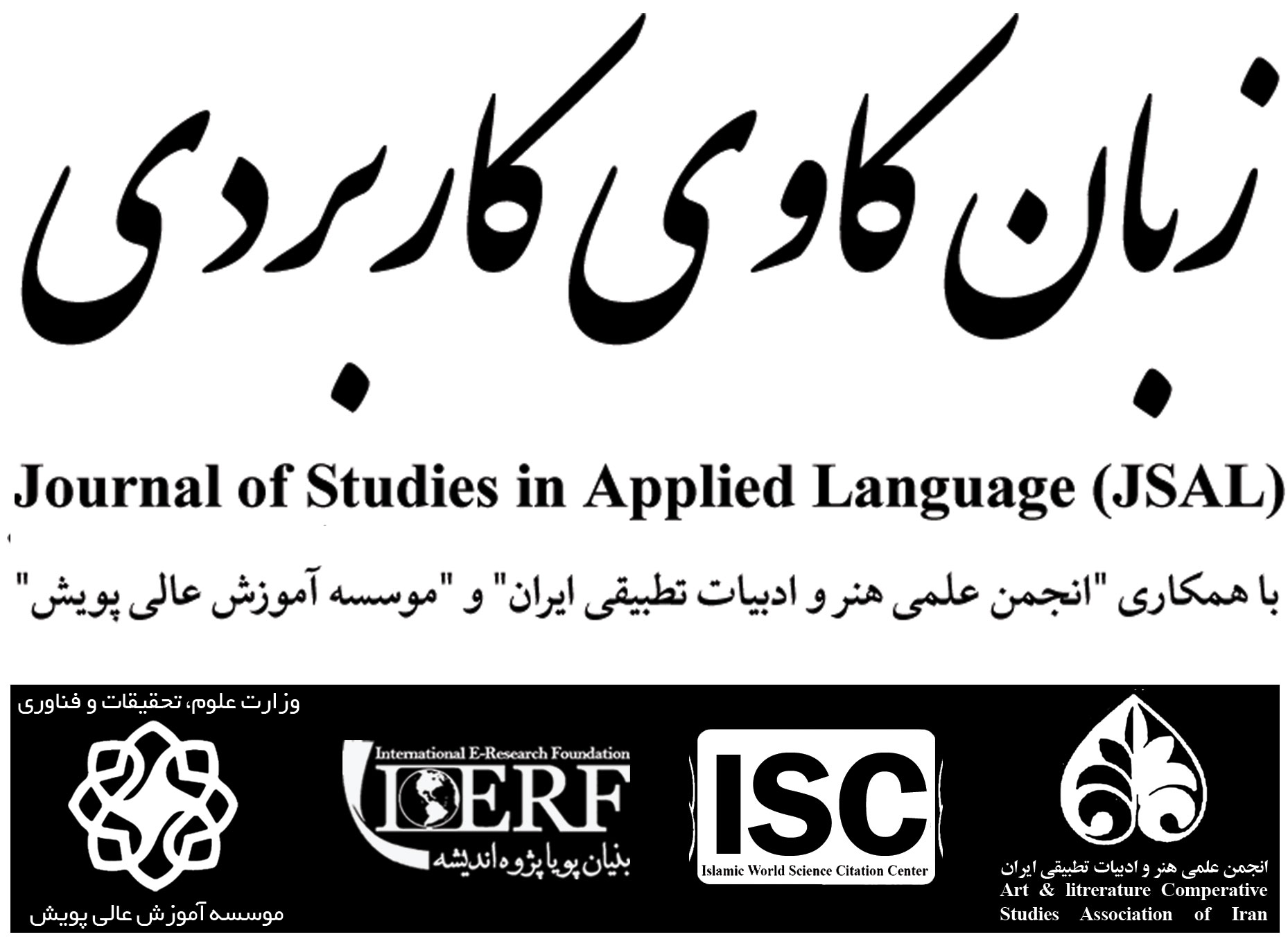دوره 5، شماره 2 - ( آموزش زبان، ادبیات و زبان شناسی 1401 )
جلد 5 شماره 2 صفحات 224-207 |
برگشت به فهرست نسخه ها
Download citation:
BibTeX | RIS | EndNote | Medlars | ProCite | Reference Manager | RefWorks
Send citation to:



BibTeX | RIS | EndNote | Medlars | ProCite | Reference Manager | RefWorks
Send citation to:
Pourjamal H. (2022). Addressing teacher self evaluation in Islamic religious texts [In English]. JSAL. 5(2), 207-224.
URL: http://jsal.ierf.ir/article-1-73-fa.html
URL: http://jsal.ierf.ir/article-1-73-fa.html
پورجمال حکیمه.(1401). گفتمان خود ارزیابی معلم در متون دینی اسلامی [به انگلیسی] زبان کاوی کاربردی 5 (2) :224-207
دانشگاه علوم پزشکی گیلان، گیلان، ایران ، hakimeh_pourjamal@gums.ac.ir
چکیده: (2319 مشاهده)
خود ارزیابی، ایجاد خودآگاهی بیشتر در مورد ماهیت و تأثیر عملکرد فرد است که فرصت هایی را برای رشد و توسعه حرفه ای فراهم می کند. در اسلام به طور مشخص بر آن تأکید شده است و به پیروان آن توصیه شده است که به طور دوره ای برای ارزیابی اعمال خود وقت بگذارند. پژوهش حاضر به دنبال یافتن شواهدی است مبنی بر اینکه خود ارزیابی در متون دینی اسلامی مورد توجه قرار گرفته است. همچنین بر این موضوع متمرکز است که چگونه الهام گرفتن از خود ارزیابی توسعه یافته در متون دینی اسلامی می تواند کیفیت شغل معلمان را بهبود بخشد. بدین منظور، آیات قرآن و روایات با توجه به خود ارزیابی مورد بررسی قرار گرفت. در همین حال، رویکردهای اخیر توسعه یافته برای خود ارزیابی برای یافتن رابطه بین این دو دیدگاه و سهمی که ممکن است به طور بالقوه در توسعه خود ارزیابی به ویژه در بین معلمان داشته باشند، مورد بررسی قرار گرفت. یافتهها نشان میدهد که خود ارزیابی یکی از اصول اساسی اسلام محسوب میشود و در چارچوب آن، انسانها بهترین ارزیابکننده خود هستند. معلمان که در کل فرآیند خودارزیابی توسط آیات و روایات متعدد قرآنی طی میشوند، برای انجام خودارزیابی، به سازگاری و انگیزه معنوی دعوت میشوند. از معلمان خودارزیابی می شود که از تعصب، تکبر، غرور، و خودافزایی اجتناب کنند و برای پیشرفت حرفه ای، مقایسه ای رو به بالا انجام دهند. یافته های این پژوهش پیامدهایی بر رشد معلمان دارد. آنها همچنین می توانند توسط معلمان انگلیسی و همچنین طراحان برنامه های درسی و کتاب های درسی به کار گرفته شوند، به این معنا که می توانند ارزیابی خود را که در متون مذهبی رو به رشد بوده اند در زمینه های EFL نیز در نظر بگیرند.
ارسال پیام به نویسنده مسئول
| بازنشر اطلاعات | |
 |
این مقاله تحت شرایط Creative Commons Attribution-NonCommercial 4.0 International License قابل بازنشر است. |






